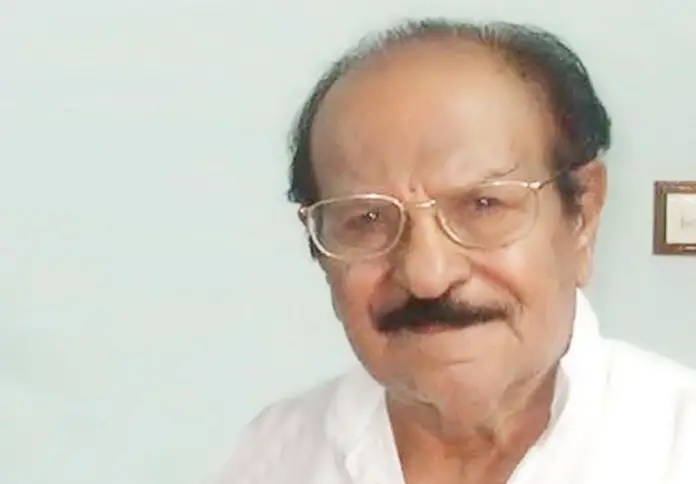The 11th death anniversary of prominent scholar, writer, scholar, historian, and linguist Dr. Nabi Bux Khan Baloch was observed on Wednesday.
Different events were held across the province to pay tribute to the legendary scholar of the Sindhi and Balochi languages. Baloch was an all-time popular scholar of Sindh who researched the Sindhi language, and was known as the encyclopedia of Sindh and Sindhi language, owing to his exceptional research work and literary contributions.
Baloch was born in the sleepy village of Jafar Khan Leghari, Sanghar district in 1917. He went to Aligarh Muslim University and did his master’s with first-class first position and LLB with first-class ranking. Owing to his phenomenal academic achievements at a young age, he got a scholarship from the British government of India for higher studies at Columbia University and completed his master’s and a doctorate in education from 1946 to 1949.
He made splendid contributions to history, folklore, literature, and education. He was a scholar and historian par excellence and produced several notable works. He didn’t limit himself to the Education Department of Sindh University’s management and conducted extensive research in archaeology, linguistics, and history. Nabi Bux studied old manuscripts on biographies, classical literature, history, and some other read-worthy documents, conducted research on them, wrote explanatory notes and addendums on them, and asked Sindhi Adabi Board to publish them.
A monthly Sindhi magazine and several other Sindhi publications were started by him to promote Sindhi folk culture and create awareness among people of the subcontinent about the importance of language. His contributions to making Sindhi University a paramount educational institute of Sindh are of high regard as he preferred Sindh University over many government positions of high rank. His most famous compilation is Shah Abdul Latif jo Risalo which comprises ten volumes and has a massive fan following all over the world. It was a massive project, including detailed research and deep-rooted apprehension of great poets’ philosophy and expertise in the Sindhi dialect itself.
The septuagenarian scholar wrote over 50 books on different genres of Sindhi language and was bestowed with Sitara-e-Imtiaz, Hilal-e-Imtiaz, and Tamgha-e-Pakistan by the government for his remarkable services in the field of literature.







